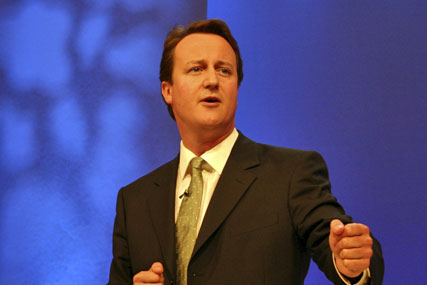
Speaking to local newspaper representatives at the Newspaper Conference annual lunch yesterday, the leader of the Opposition acknowledged that when the BBC enters new markets, it was in danger of "crushing" commercial enterprises already investing in the area.
Cameron said: "...some of the things it's been doing online, its plans for video on demand, and some of what it's been doing in competition with local newspapers, those are the things where it should be restrained."
He added that his own party had already drawn up plans for a stronger public interest test to rein in the broadcaster's impact on other businesses, claiming the current function of the BBC Trust "doesn't make sense".
His comments come as many in the regional press fear the BBC's desire to expand its online local services will jeopardise their own online operations at a time when they face falling circulations and ad revenues.
The sector also believes the proposals represent unfair competition, since they will be funded by the licence fee.
Cameron called the role of regional newspapers "valuable in terms of the health of a combative democracy", and once again pledged his support for the decentralisation of government, and a fundamental shift in power to "local people".
He added: "That's why we will put in as much work as we can into a relationship with you because we think you're a valuable institution, in and of yourself, but also you're valuable in terms of the health of a combative democracy."
Labour media secretary Andy Burnham has publicly stressed that whether or not the plans go ahead rests with the BBC Trust, which represents the BBC licence fee payer.
The BBC Trust is set to publish its findings on the BBC's plans to provide video news services on 65 websites this Friday (21 November).



.jpg)


.jpg)